Colour Conversation with marine biologist Owen Day
What better way to usher in our new Colour of the Month, Ocean Blue, than with a Colour Conversation between Melissa and her long-time friend, marine biologist Owen Day. Owen has spent the past 20 years developing programmes in marine research, education and conservation in the Caribbean, and more recently his work has focused on the impacts of climate change on the world’s coral reefs. Melissa joined him at Eype beach in Dorset to talk about the power and majesty of the sea, the need to respect it and the life that thrives within it – and, of course, colour…
Firstly, Owen, thanks so much for joining me bright and early on a summer’s morning for my first al fresco Colour Conversation (and for sporting your Autumn colours in our new Kettlewell No Logo Polo T-shirt!). I just wanted to kick off by asking you what first inspired you to become a marine biologist…
My pleasure, Melissa! Actually, I’ve been giving this some thought recently, and I think what triggered it was when my father took me snorkelling when I was four in New Guinea. He put this little mask on me, I held him by his neck, and dipped my head underwater, and to this day I can remember what I saw: an unbelievable explosion of little red, blue and yellow fish and pink and blue coral. I can still visualise it now, it was like a psychedelic dream. I can remember thinking, ‘This is magical.’ From then on, I was obsessed with the sea.
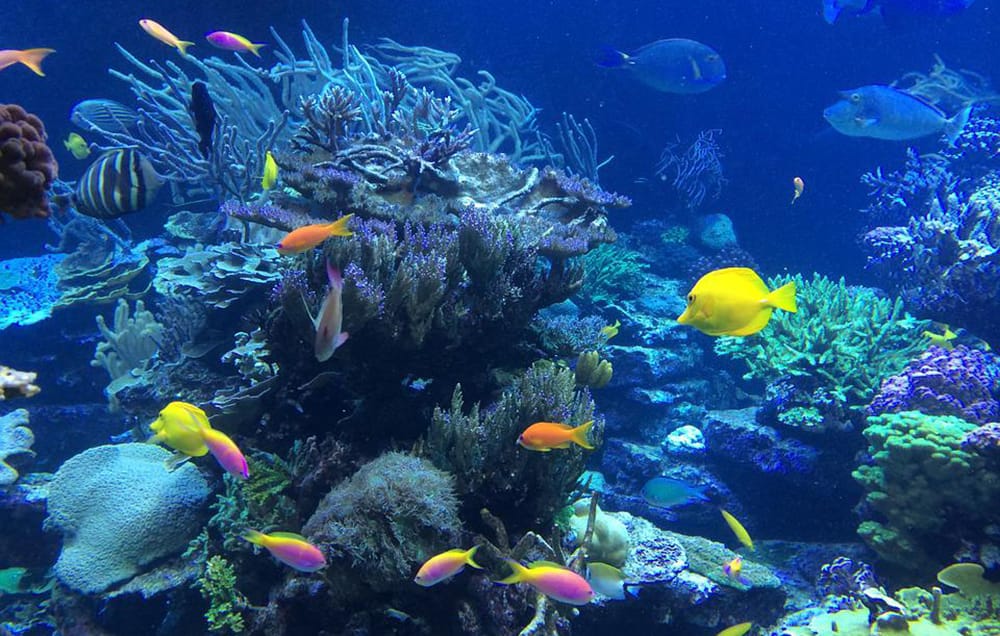
Where did you study marine biology and what was your career progression?
After studying biochemistry at Oxford in 1988, I completed a Masters in marine biology at the University of Wales, followed by a PhD on Dover sole. At the time the Government were very keen to enhance the stocks of Dover sole in the Irish Sea because they had plummeted due to overfishing and the Government had a big programme to rear millions in captivity and release them, but the little things didn’t want to feed, so my PhD was on trying to figure out why and what they needed to eat. The Government programme changed halfway through, so my last two years were spent working on fish farms in Spain and Greece, developing feeds for farming Dover sole. It did cross my mind that I should work in fish farming but I found it just so industrial – all these wonderful, great big, flat turbot in tanks that had so little space that they were stacking them, and I didn’t want to be part of that. That’s when I decided to do something very different.
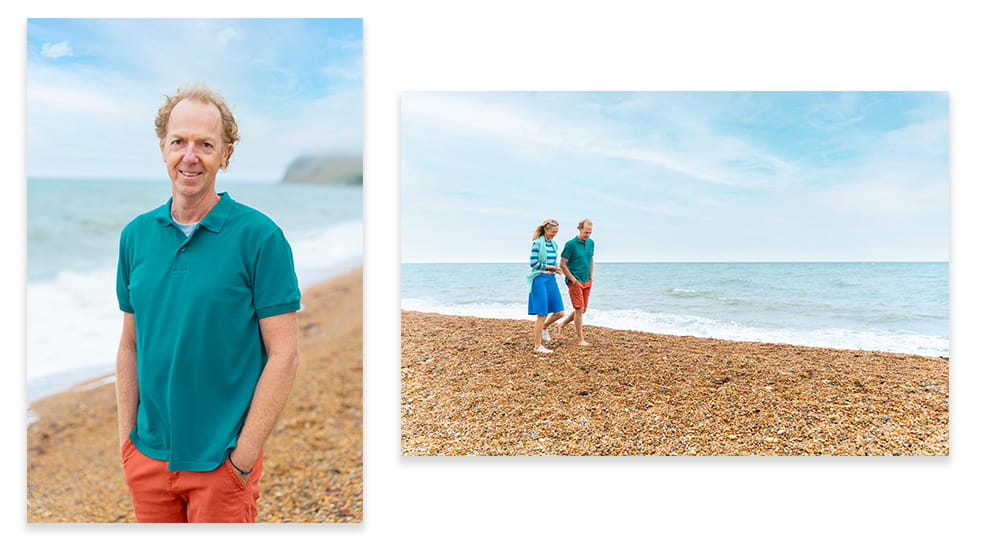
Owen and Melissa at Eype beach in Dorset. Owen is wearing a Sea Green No Logo Polo, Melissa is wearing an Aqua Sparkle Suzy Stripe Top, Cornflower Carly Skirt and a Cashmere Gauze Stole in Light Aqua (previous season)
Yes, tell us about your move with your young family to the Caribbean and your research work there….
One day I got a call about a project in Trinidad and Tobago. I looked on a map, discovered where it was and, to cut a very long story short, two years later moved with my wife Suki and three children to set up a marine research centre in Tobago – a not-for-profit centre for education research and conservation with 18 staff, working on coral reefs. It felt like a brave move at the time because my daughter Phoebe was just nine months old and, from Suki’s point of view, she had moved out there with three tiny children and didn't know a soul. But within six months Suki had made very good friends and we had a great time in Tobago.
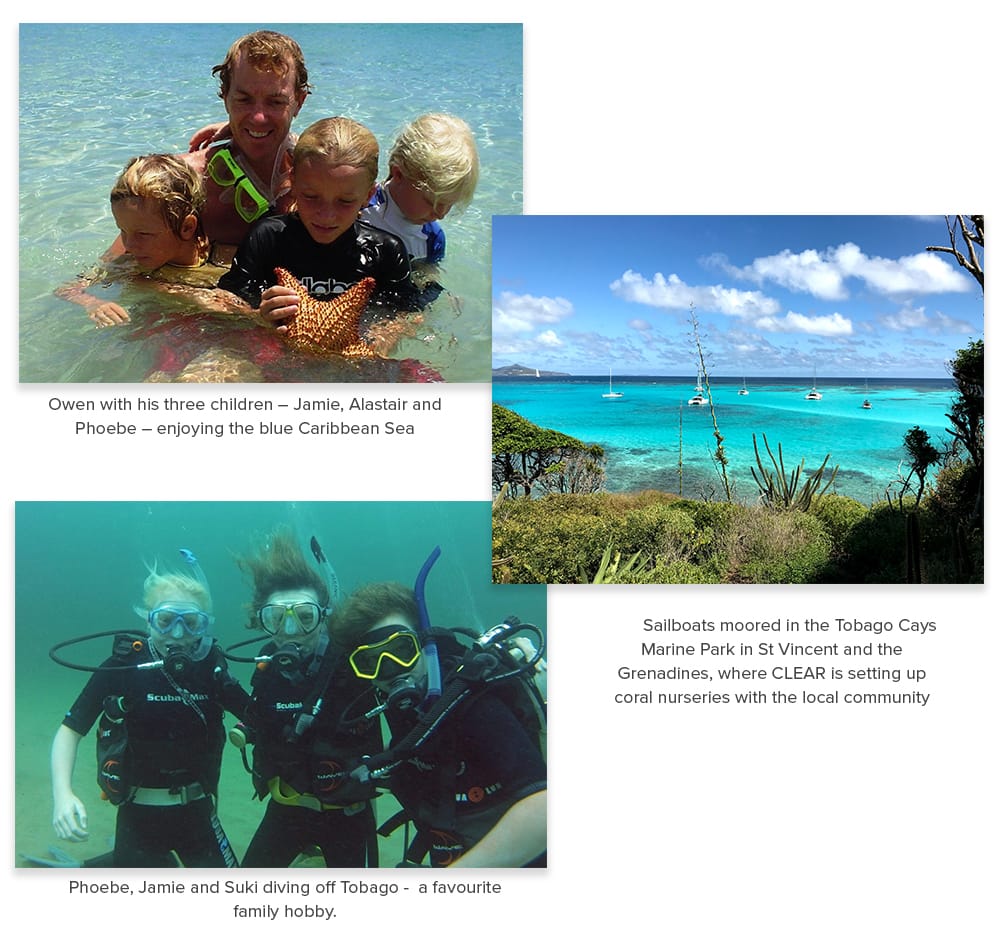
You’ve been back living in the West Country for the past 14 years and have set up your own company, CLEAR Caribbean, increasingly focusing on coral restoration across the world. Can you tell us more about that work?
Coral reefs have been described as the canary in the coal mine – they will be the first to die when climate change really takes off. Coral is super-sensitive to climate change and higher temperatures; they can adapt to warm conditions, but sudden warmth is very stressful for them. What we are doing now more and more is propagating the corals that seem to be more resilient. In coral nurseries at different locations in the eastern Caribbean we are training local people to manage the nurseries, to set them up, maintain them, manage them.
Another aspect of what we do as an organisation is link all that with tourism and community development. We have a big coral nursery in St Lucia and work with Sandals Resorts, so if anyone wants to learn about nurseries and planting coral, they can do a speciality PADI course and half of that money goes to the local community.
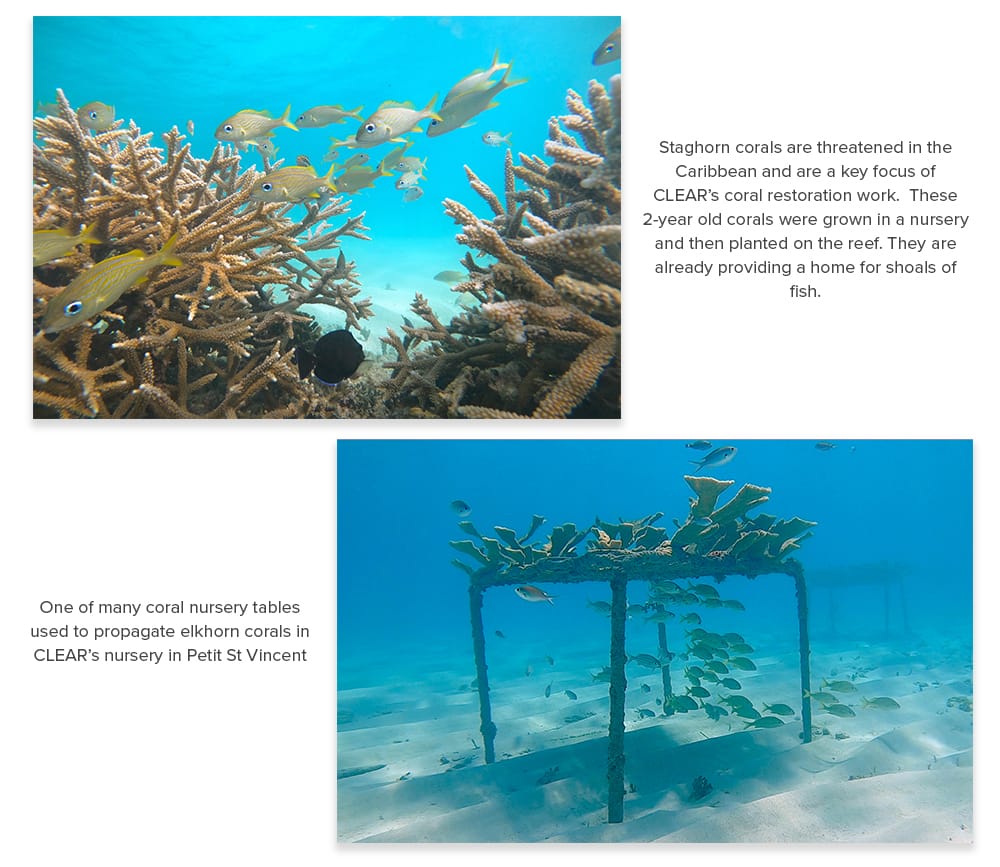
Can we touch briefly on microplastics and washing, because obviously that’s very relevant to us as a fashion business…
Yes, microplastics are a huge problem and incredibly damaging to sea life. I do think that technology is going to have to step in at some point and make sure that washing machines are fitted with a filter that stops these tiny particles ending up in the marine food chain. And then of course, as you have said when we’ve talked about it, Melissa, washing at cooler temperatures as that releases fewer microplastic fibres and not washing your clothes so frequently. I would say that’s a very good recommendation: don’t wash things if you don’t need to.
Read our advice for taking care of your Kettlewell clothing here
How should we go about eating fish more sustainably?
The Netflix documentary Seaspiracy has been criticised for oversimplifying the whole picture and advising that we stop eating fish, but as my son Jamie points out, if you make the messaging too complicated, people will just ignore it. So maybe we need simple messaging about not eating fish more than once a week, and eating only fish that carries the MSC label and farmed and hand-dived shellfish. Hand-dived scallops, and farmed oysters and mussels, for example, are environmentally friendly. Without wanting to preach, I think we simply need to be eating a lot less fish and meat; we need to make it a treat.
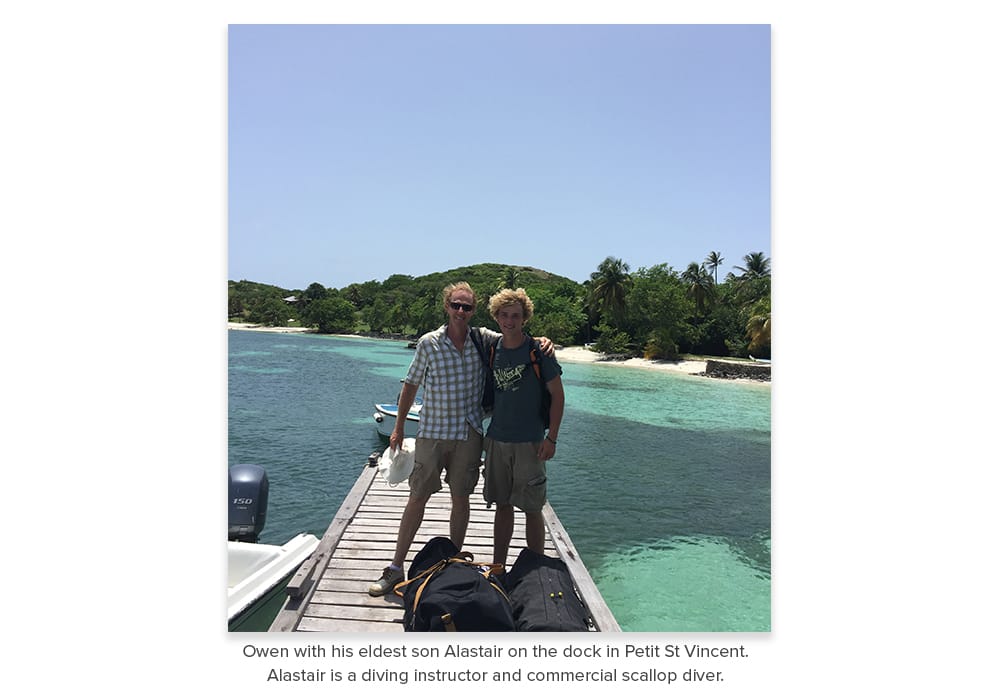
You’ve travelled all over the world and visited some stunning locations. Where would you say is your favourite place?
One of my favourite places is a little island called Little Tobago, which is really beautiful and wild. There’s nothing between that island and Africa, so it gets the full strength of the ocean. It really is pretty special.
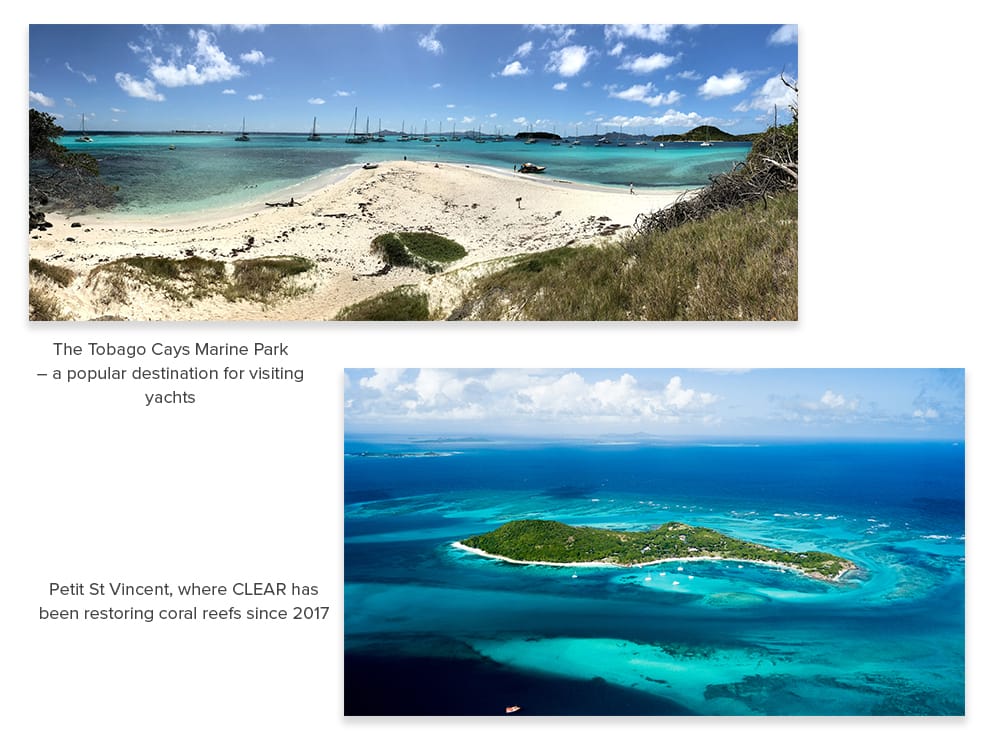
And finally, what does colour mean to you…
Well, it’s a really joyful and powerful thing. And it can be a symbol for so many things – for example, yellow for positivity and optimism, green for sustainability, rebirth and renewal. I’m an optimist and a great believer in the resilience of nature to bounce back – often much faster than any of us could have imagined.
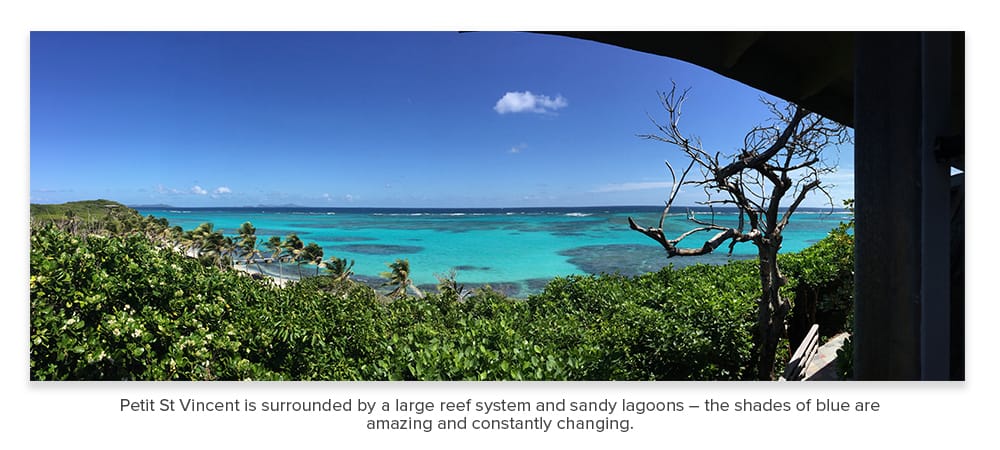
You can read more about Owen's company CLEAR Caribbean and the work they do on his website here



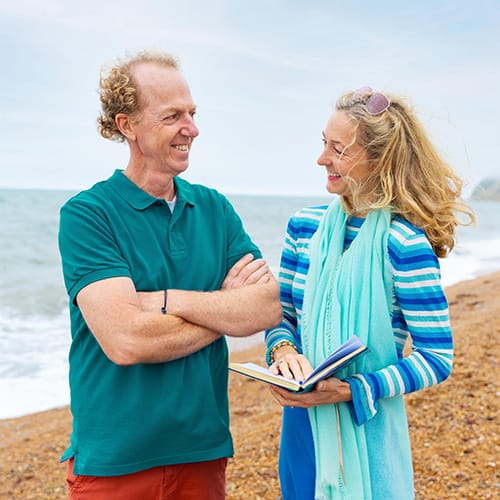

Elizabeth L on Sep 24, 2022 7:25 PM
Very informative. Maybe an article on producing environmentally safe colour dyes?
Tori Allen on Aug 09, 2022 12:47 PM
Fantastic! Thank you for featuring Owen and his work. I've always been a conservationist- corresponding with Jane Goodall as a child- and also felt the magic of the amazing colours when snorkelling off a Caribbean island years ago. As a Blue Spring the colours of the sea, ocean, coral reef, beach and sky are all deliciously wonderful :)
Lynn Nadjarian on Aug 06, 2022 3:43 AM
This is very real to me living in Australia with our World Heritage Great Barrier zReef under threat from bleaching n climate change. We are very concerned that we limit runoff from farms and industry. Thank you Owen for the very important work you and your family do and for spreading the message of sustainability.
Helen H on Aug 05, 2022 6:12 PM
Thank you for another excellent blog featuring an interesting person. I love these (and often want to have their job!) What links these people is their enthusiasm for what they do, and their interviews work well alongside Jo's brilliant colour articles.
Una on Aug 05, 2022 4:24 PM
Very interesting coversation and informative for a city-slicker like me.
Helen Williamson on Aug 05, 2022 3:43 PM
Wonderful. 🌊🐠💧